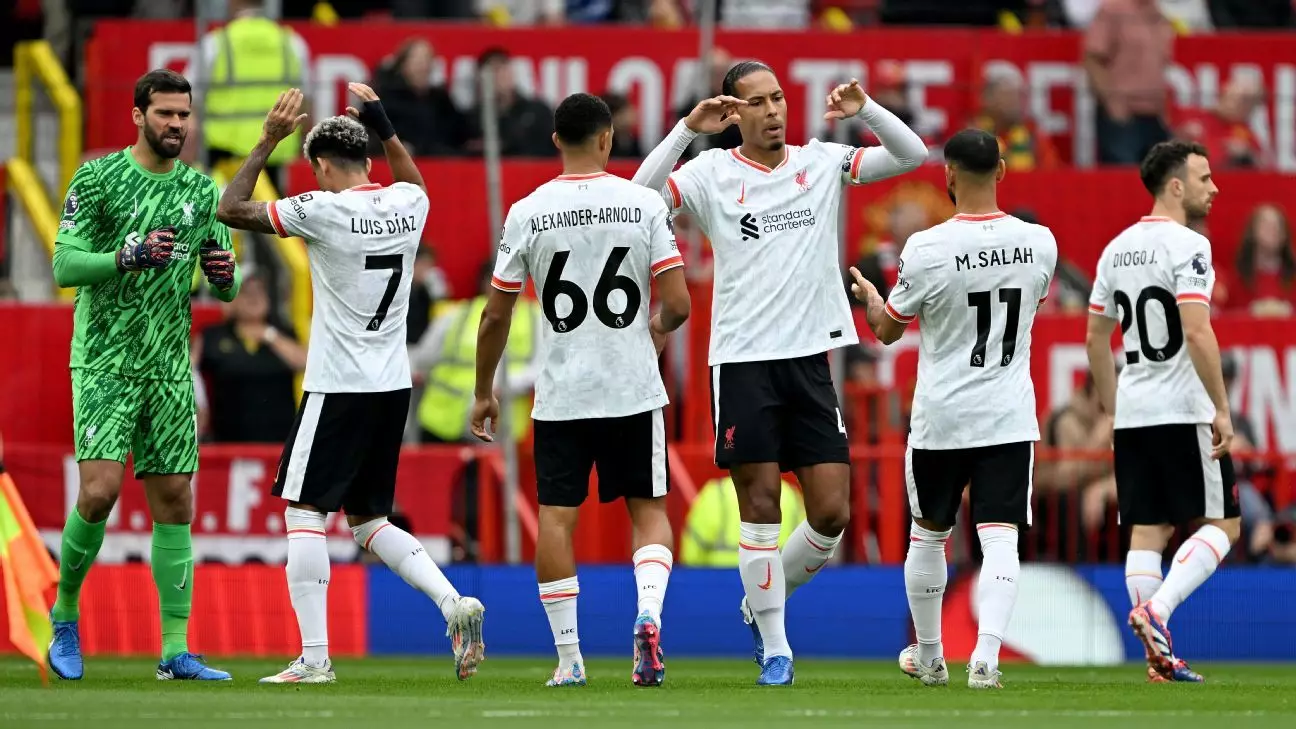Liverpool FC stands at a pivotal crossroads as it navigates the intricate landscape of professional football contracts. With less than 100 days remaining in the current season, the club finds itself on the brink of potentially losing three of its most influential players—Mohamed Salah, Virgil van Dijk, and Trent Alexander-Arnold—without receiving a penny in return. This impending crisis reflects poorly on the club’s management and calls into question its long-term strategy.
The contracts of Salah, Van Dijk, and Alexander-Arnold expire at the end of the current season, granting them the freedom to negotiate with foreign clubs as early as January 1, 2025. This scenario not only jeopardizes the team’s performance but raises substantial concerns among fans about the club’s future. Salah, at 32 years old, and Van Dijk, at 33, are both entering the twilight years of their careers, while Alexander-Arnold, at 25, is on the brink of his prime. Each player possesses unique qualities that contribute to Liverpool’s success, but the club’s leadership—led by owners Fenway Sports Group (FSG) and CEO Michael Edwards—has, regrettably, opted to delay negotiations, creating an air of uncertainty.
The silence from Liverpool’s boardroom is strategic but risky; it reflects a lack of urgency in addressing critical contract renewals. Supporters are understandably anxious. They not only fear the departure of club icons but also question the timing of these negotiations. With past players such as Sadio Mané and Roberto Firmino leaving the club under similar circumstances, there is a growing sentiment that Liverpool’s management has misread the situation. What’s more perplexing is that the longer these contract talks are postponed, the more control Liverpool relinquishes over these valuable assets.
The players are aware of their worth, and the ongoing silence only emboldens them. Van Dijk became the first to express frustration publicly in August, stating that there had been “no change” regarding contract discussions. Salah echoed those sentiments in September, indicating his readiness to play out the remaining season without an assurance of his Liverpool future. With rumors swirling about other clubs’ interest, the players are in a power position—one that Liverpool desperately needs to regain.
A Calculated Gamble on Star Performers
Salah and Van Dijk present a unique predicament for Liverpool’s management. While both display exceptional talent, their age raises questions about future performance levels. The club faces a tough decision: should they offer lucrative contracts—perhaps extending for multiple years—that could see the club burdened with high wages for potentially declining performances? This caution is understandable, particularly after past experiences with star players who peaked and then left the club soon after.
In contrast, Alexander-Arnold’s situation is markedly different. Entering his prime, he represents a good investment for the club if they decide to secure him with a long-term contract. However, the timing of negotiations could lead to unforeseeable ripple effects among the players. If Alexander-Arnold is given a new deal first, Salah and Van Dijk may justifiably expect similar treatment. Conversely, if Liverpool prefers to negotiate with the more veteran players first, they risk alienating one of the club’s homegrown talents.
Adding to the urgency of the negotiations is the ceaseless speculation linking Alexander-Arnold to clubs like Real Madrid. This swirling rumor mill complicates matters significantly. Should he choose to delay discussions, as past legends like Michael Owen and Steve McManaman did, this could create a detrimental rift between the player and the fans. Alexander-Arnold, who has expressed his commitment to Liverpool, now faces a make-or-break moment. His comments about future trophies indicate a desire not only for individual success but also for a collective achievement, enhancing the stakes even further.
The situation is a precarious one for Liverpool. As the clock ticks down, the risk of losing three staggering talents for nothing becomes increasingly likely. The longer negotiations drag out, the more they become a distraction for the players and the club alike. On one side, players could benefit significantly from new hefty contracts or lucrative free-agent status. However, for Liverpool, the stakes are dire; along with the potential loss of talent comes the loss of stature, legacy, and brand strength. The club must act decisively and promptly to craft a more secure future, one that honors its great players while ensuring the team’s competitive edge is not compromised. In the end, the next few months could alter the trajectory of Liverpool FC irrevocably.


Leave a Reply